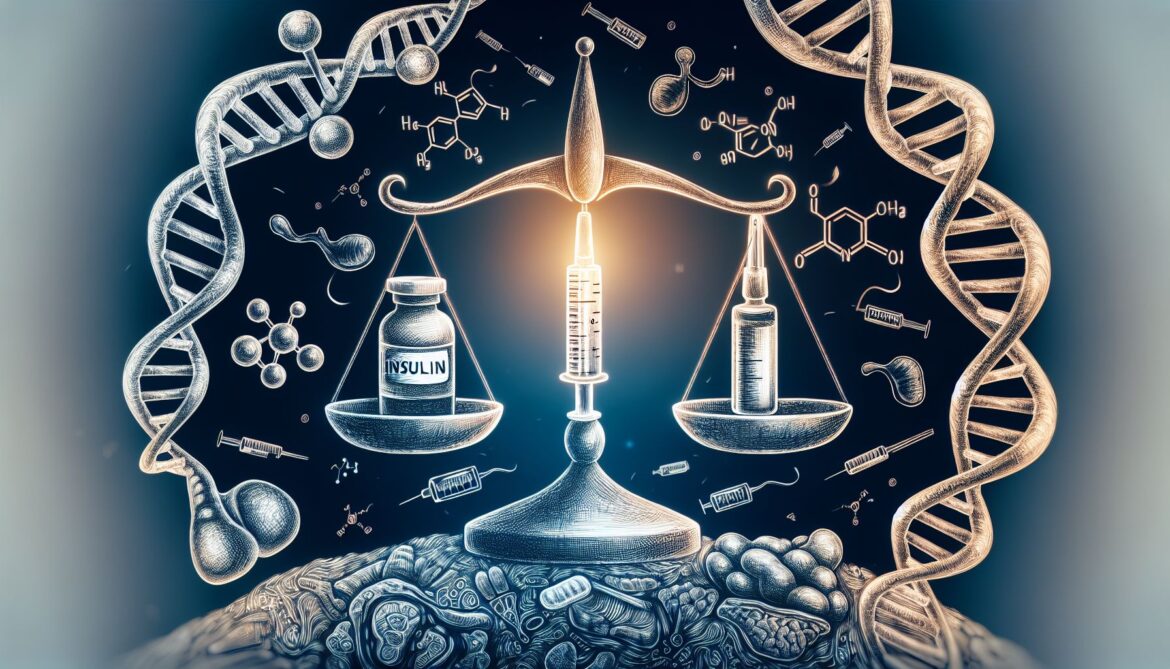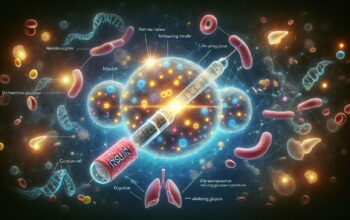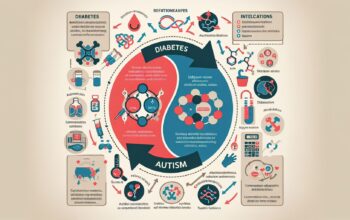Diabetes, a health condition affecting nearly 400 million adults around the globe, is often closely tied with insulin, a hormone responsible for regulating blood sugar levels. A deeper understanding of the complex relationship between these two can hold the potential to transform your perception and management of diabetes, especially if you or a loved one lives with this condition. So, let’s delve into this.
The Role of Insulin
Before determining the connection between insulin and diabetes, it is essential to understand the function of insulin in your body. Produced by your pancreas, insulin acts as a gatekeeper, allowing glucose—obtained from the food you consume—to enter your body’s cells, where it is utilized for energy.
If the insulin in your body is insufficient or ineffective, glucose remains in your bloodstream, leading to high blood sugar levels—a precursor to several potentially serious complications, such as stroke, kidney disease, heart disease, and nerve damage.
Two Main Types of Diabetes
Understanding the differences between type 1 and type 2 diabetes is fundamental to understanding insulin’s role.
Type 1 Diabetes
Type 1 diabetes is an autoimmune condition, often diagnosed in childhood or young adulthood, but it can appear at any age. In this form of the disease, your immune system incorrectly attacks and destroys insulin-producing cells in your pancreas. As a result, your body can no longer produce insulin, leading to a build-up of glucose in your bloodstream.
Since your body can’t manufacture its own insulin, you must resort to insulin therapy to manage your blood sugar levels. Delivering insulin through injections or a pump, you can mimic the natural release of insulin by a healthy pancreas.
Type 2 Diabetes
On the other hand, type 2 diabetes—the more common type—occurs when your pancreas doesn’t produce enough insulin or when your body becomes resistant to its effects, again leading to high blood sugar levels. Generally, type 2 diabetes can be managed through a healthy diet, regular physical activity, and medication. However, some people with type 2 diabetes may eventually need insulin therapy if other methods of blood sugar control become ineffective.
The Effect of Insulin Therapy on Controlling Diabetes
Whether you have type 1 or type 2 diabetes, insulin therapy can play a crucial role in managing your condition, helping to prevent diabetes-related complications.
Diabetes treatment plans are tailored individually, considering factors like your lifestyle, the type and severity of your diabetes, and your age. They may include different types of insulin, administered at various times of the day, to mimic the body’s natural insulin release patterns.
Fast-acting insulin, for instance, quickly reduces blood sugar levels and is typically taken at meal times. Long-acting insulin, on the other hand, works for a full day or longer, mimicking the slow, steady release of insulin in a non-diabetic body.
While insulin therapy can greatly aid in controlling blood sugar levels, it requires continuous monitoring and adjustment. This might involve regular blood sugar testing to ensure that the dosage stays accurate. Furthermore, lifestyle factors like meals, physical activity and stress can impact blood glucose levels, posing additional factors to consider.
The Future of Insulin in Diabetes Management
While insulin therapy remains a cornerstone of diabetes management, ongoing research aims to continually improve insulin delivery methods and even, potentially, cure the disease. From advancements like ‘smart’ insulin that will release in response to changing blood sugar levels, to groundbreaking research in islet cell transplantation which aims to restore the body’s ability to produce insulin, the future of insulin in diabetes management looks promising.
Conclusion
Understanding the relationship between insulin and diabetes is crucial for anyone living with the disease. Proper insulin management can lead to improved blood sugar control and a reduced risk of complications. While the ultimate aim remains to find a cure for diabetes, insulin therapy plays an undeniable role in managing the disease. With ongoing research and advancements, the hope for a more effective course of treatment—or even a cure—remains alive. Whether you’re living with diabetes, caring for someone who is, or simply aiming to expand your knowledge, remember: knowledge is power—and your stepping stone towards a healthier life.




